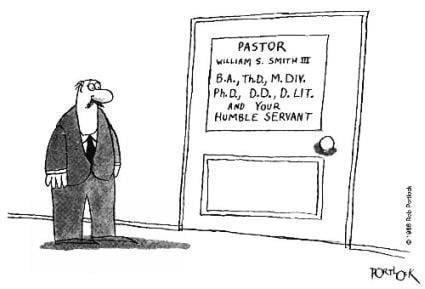
Guest Post by Merle Hertzler who blogs at The Mind Set Free
Self-esteem is important. We need our self-esteem to be positive; else, we might become depressed. We also need our self-esteem to be realistic; else we could make bad decisions based on our misunderstandings. Sometimes those goals are conflicting. But I find it possible to achieve both.
My self-image is based on naturalism and humanism. This I find to be both realistic and positive.
You may have found other ways to build your self-esteem. Is your way realistic? Is your way positive? These are important questions to ask.
Many value the Bible as their basis for self-esteem. This has been confusing to me. The Bible never specifically mentions self-esteem. It often has a low view of human nature and strongly condemns pride. The Bible even praises Job for abhorring himself (Job 42:6) and speaks in favor of people loathing themselves (Ezekiel 20:43). So, how can you turn to the Bible as your source for self-esteem?
I came from a religious background that shared the Calvinist view known as “total depravity.” When it comes to our inner self, this view offers little to feel good about. This view tells us we are innately bad.
Years later, I met Christians who had a much higher view of human nature. They also based their views on the Bible. Who was right? Struggles over this issue led me to study the Bible and self-esteem. Eventually, this was one of the keys to my deconversion. I tell the story here.
In the first chapter of his online book, Beyond Born Again, Robert Price documents these two contrasting Christian views on solving life’s psychological problems. First, there is a hardline, traditional view that sees the Bible alone as our source for human living. It has little need for psychology. Proponents such as Jay Adams and Martin Bobgan often take a negative view of the value of self-esteem. They see humans as justly deserving Hell because of who we are. Our problems are essentially spiritual. Christ is the answer.
By contrast, other sites such as this one rely heavily on psychology. Advocates of this view seek cures such as promoting self-esteem. They adopt opinions that are often consistent with humanism. They have many proof texts, but are they really learning this from the Bible? I contend they are often drawing from secular humanism and science, not the Bible.
If you trust the Bible, should you adopt the hard-line view or the soft-line view? Or is there, perhaps, a better way, one that is built honestly on a secular foundation?
I contend that the hardline, anti-psychology view is neither realistic nor positive. The soft-line, pro-psychology Christian view is positive but also often unrealistic. I contend that humanism and science point to the best way.
Are We Evil?
Let’s begin with a simple question. In a moral sense, are we humans good, or are we evil? Many Christians say we are innately bad. If so, then how could we possibly have a positive image of the self?
Christian doctrinal statements have generally seen us humans as evil. For instance, the Westminster (Presbyterian) confession of faith says:
They [Adam and Eve] being the root of all mankind, the guilt of this sin was imputed; and the same death in sin, and corrupted nature, conveyed to all their posterity…
From this original corruption, whereby we are utterly indisposed, disabled, and made opposite to all good, and wholly inclined to all evil…
Every sin…does in its own nature, bring guilt upon the sinner, whereby he is bound over to the wrath of God, and curse of the law, and so made subject to death, with all miseries spiritual, temporal, and eternal. Westminster Confession of Faith
We find we are descended from corrupted people and that we now have a corrupted nature. In fact, we read here that we are “opposite of all good,” “wholly inclined to all evil,” and properly deserving of God’s wrath. Why is God angry with us? According to this document, it is because we deserve it.
Similarly, the London Baptist Confession says we have all become, “dead in Sin, and wholly defiled, in all the faculties, and parts, of soul, and body.”
The Articles of Religion of the Methodist Church says, “man is very far gone from original righteousness, and of his own nature inclined to evil, and that continually.”
Those statements leave little room to feel positive about ourselves.
John Calvin not only agreed with this low view of humanity but went so far as to call self-love a noxious pest that engenders all sorts of foul behavior. He said the only way to live a good life is to leave off all thoughts of yourself. He wrote:
This is that self-denial that Christ so strongly enforces on His disciples from the very outset (Mat 16:24), which, as soon as it takes hold of the mind, leaves no place either, first, for pride, show, and ostentation; or, secondly, for avarice, lust, luxury, effeminacy, or other vices which are engendered by self love (2Ti 3:2-5). On the contrary, wherever it does not reign, the foulest vices are indulged in without shame…
There is no other remedy than to pluck up by the roots those most noxious pests, self-love, and love of victory. This the doctrine of Scripture does…
How difficult it is to perform the duty of seeking the good of our neighbor (Mat 12:33; Luk 10:29-36)! Unless you leave off all thoughts of yourself and in a manner cease to be yourself, you will never accomplish it. Calvin on Self-Denial, by John Calvin, pp. 4, 7, 8. (Click here to download as PDF.)
So, if Calvin is right, we should not even love ourselves, for self-love is the source of the vilest of vices. Many Christians have historically agreed with Calvin on this. Did they get this from the Bible? Let’s look at what it says.
How Does the Bible See Us?
Many verses see humans in a negative light. As I mentioned above, Ezekiel approves of self-loathing. He writes, “And there you will remember your ways and all your deeds by which you have defiled yourselves; and you will loathe yourselves in your own sight for all the evil things that you have done.” (Ezekiel 20:43)
As another example, the book of Job is a drama discussing various reactions to Job’s suffering. At the end of the book, God steps in and lectures everybody on the true answer. (Job 38-42) It turns out that God is so much greater than people, and people just would not understand why they suffer. So Job and his friends better just accept what comes to them. Humans just wouldn’t understand, so don’t even ask. Job responds to this lengthy reprimand by saying, “Wherefore I abhor myself, and repent in dust and ashes.” (Job 42:6 KJV) The book of Job implies God approved of this response.
And Isaiah 64:6 tells us “all our righteous deeds are like a filthy garment”
These verses are not merely telling us to recognize that we did bad things. They are telling us we are bad to the core. We should loathe ourselves, abhor ourselves, and understand that our best deeds are nothing more than filth.
What about the New Testament? Jesus says we are evil (Mat 7:11, Luk 11:13). He tells us, “when you do all the things which were commanded you, say, ‘We are unworthy slaves; we have done only that which we ought to have done.’” (Luke 17:10) I see nothing there about intrinsically being worthy of self-love. We are simply unworthy slaves who better do what we are told to do.
John 15:5 says, “Apart from me you can do nothing.” Are we that helpless on our own?
Paul expands on this view. In Romans 3:11-19 he tells us that all have become unprofitable and that none is good. Our tongues are full of lies, our feet are swift to shed blood, and we don’t know the way of peace. Paul even tells us the whole purpose of the law is to make us feel guilty before God. Guilt? God wants us to feel guilty? That is far from the modern Christian psychological view that encourages us to accept our inner selves and minimize our feeling of guilt.
Total Depravity and Self-Esteem
Based on verses like the ones above, many have adopted the doctrine of “total depravity.” Total depravity is the first point of the popular Calvinist TULIP acronym. Here is an example description of total depravity from a Christian site:
The doctrine of total depravity is an acknowledgment that the Bible teaches that as a result of the fall of man (Genesis 3:6) every part of man—his mind, will, emotions, and flesh—have been corrupted by sin. In other words, sin affects all of our being including who we are and what we do. It penetrates to the very core of our being so that everything is tainted by sin and “…all our righteous acts are like filthy rags” before a holy God (Isaiah 64:6). It acknowledges that the Bible teaches that we sin because we are sinners by nature. (Source)
It appears to me that total depravity is devastating to one’s positive self-esteem. Can a Christian believe in total depravity and also seek to build his self-esteem? Or are these incompatible? Recently I asked these questions on a thread on the Christian Forums website. Many on that thread could see the conflict between those two concepts.
Some people there resolved the conflict by rejecting the need for high self-esteem, clinging strongly to the traditional view of total depravity. One person wrote that self-image, self-love, self-esteem, and self-confidence are incompatible with his theology. This is one way to solve the conflict, but it is a little depressing. If I had to give up either self-esteem or total depravity, I would give up total depravity.
Others did indeed reject the idea of total depravity or watered it down to the extent that it lost its original meaning.
Dropping total depravity may seem like the natural way out of the dilemma, but there is a problem. If you reject total depravity, then why does Hell exist? The hard-line view says people are in Hell because they deserve it. Total depravity takes God off the hook. People that are in hell deserve it. Don’t blame God. But that also destroys self-esteem. If we are so rotten that we deserve Hell, how can we feel positive about ourselves?
If you instead decide to reject total depravity, how can your God justify Hell? Those that deny total depravity tend to justify Hell on a technicality. They will tell me that their God has a list of demands. And if your score on life’s test is not 100%, then sorry, you go to Hell, that’s the rule.
Oh, but they also say believers have an exemption. Don’t forget that.
But what about everybody else? What about those who never heard? Sorry. If they don’t believe in Jesus, they need to score 100% on the test.
One wonders why a loving God would make this the rule. If any schoolteacher were to fail every student that ever scored less than 100% in his class, we would regard his expectations as unrealistic. So how could God make such a requirement?
And if you say we can’t blame God for that requirement, for the nature of reality is such that God had no choice but to enforce this rule, then God is not all-powerful. Whatever it is that made this rule that demands perfection is then more powerful than God.
If some people go to Hell, not because they are depraved people who deserve it, but because they failed to be 100% perfect, and they never heard of Jesus, one wonders why God would not be more tolerant. If people don’t really deserve Hell, and they are just slightly off course, why doesn’t God stop the suffering? If we deny total depravity, then we are left with people that deserve to feel good about themselves being condemned forever as utter trash. That makes no sense.
Those that have taken this course to promote self-esteem and abandon total depravity often find the doctrine of Hell is the next to go. If people aren’t totally depraved, a God who enforces such punishments on good people who are not perfect is not easy to accept. So the doctrine of Hell is frequently ignored or even argued away.
Some people on that Christian Forums thread went through mental contortions to make total depravity and self-esteem compatible. One person suggested that “total depravity” simply means that we are good people that sometimes make mistakes. That is not total depravity.
Another person on that thread suggested that total depravity was just another way to say we were not good enough for God. But not being good enough for God is not the same thing as being totally depraved. For instance, I am not good enough to play chess in a tournament with grandmasters, but I do have significant chess skills. The fact that I could not play competitively with Magnus Carlsen does not mean I am totally deprived of chess skills.
We cannot water down “total depravity” by saying it just means “good but falling a little short of the standard.” That is an abandonment of total depravity.
Another person told me I could have positive self-esteem if I ignored my human, evil nature. That is ersatz self-esteem. The self-esteem that comes from ignoring reality is not true self-esteem. But this is the best self-esteem this believer in total depravity could come up with for unbelievers.
So, if one adopts a view of total depravity, based on the Bible and on the need to explain Hell, one is left with a struggle to have any meaningful positive self-esteem.
In the extreme, groups like the Independent Fundamentalist Baptists, of which I was once a participant, see people as little more than a spec of worthless dust.
And so, I find traditional Christian doctrines of depravity are at odds with the modern emphasis on self-esteem. Many who were once trapped in these depressing doctrines of human depravity have expressed tremendous psychological relief when leaving these doctrines of faith.
Pride
The Bible repeatedly mentions pride. Here are links to the many verses that mention pride; verses that mention the proud; and verses that mention the haughty. The Bible tells us that we are to hate pride (Pro 8:13); that pride leads to dishonor (Pro 11:2); that pride leads to destruction (Pro 16:18); that it brings us low (Pro 29:23); and that God humbles those who walk in pride (Dan 4:37). In Mark, pride is listed as one of the evil things that defile a man (Mark 7:21-23). And Pro 16:5 tells us, “Everyone who is proud in heart is an abomination to the LORD.” Other verses tell us God opposes the proud and gives grace to the humble (Jas 4:6, 1Pe 5:5).
And Isaiah tells us:
Moreover, the LORD said, “Because the daughters of Zion are haughty and walk with heads held high and seductive eyes, and go along with mincing steps and jingle the anklets on their feet, the Lord will afflict the scalp of the daughters of Zion with scabs, and the LORD will make their foreheads bare.” Isaiah 3:16-17
You do not want your scalp afflicted with scabs or your forehead bare. Isaiah says if you are haughty and walk with head held high, this will happen. Will you no longer walk with your head held high? Or will you ignore this warning?
Christians who want healthy self-esteem will tell us that high self-esteem and pride are not the same thing. One website says pride is the notion that we don’t need help, or that pride is the notion that one is superior. Where do they come up with these definitions? Nowhere does the Bible tell you that is what it is talking about. One would think that authors who wanted us to think highly of ourselves, but to avoid certain errors, would be clear that they are actually praising high self-feelings, and that their condemnation applies only to certain wrong extremes of pride. The Bible does not do this. It declares a blanket condemnation of pride. It sure looks to me like it is condemning the very essence of high self-esteem.
Biblical Self-Esteem
Despite the conflicts between the Bible and Christian teachings, many modern Christians have found ways to promote high self-esteem. You will find many Christian sites arguing for the virtue of self-esteem, such as this site and this one. You will find lists of Bible verses supposedly supporting self-esteem here and here. Yet the verses they list have little to do with self-esteem. None of these sites shows a verse warning of the problem of low self-esteem. None lists a verse telling us to think generally more positively about ourselves. None can find a verse stating the need for high self-esteem.
But there are many verses that say the opposite. Romans 12:3 tells us not to think more highly of ourselves than we ought to think. Galatians 6:3 warns people that think they are something when they are nothing. No verse warns us about thinking we are nothing when we are actually something. 2 Timothy 3:2 warns us that the last days will be terrible. It gives a long list of evils, beginning with “lovers of their own selves.” Low self-esteem or lack of self-love didn’t make the list of evils. But loving oneself is on that list. As I said at the top of this post, it is important that our self-esteem is both accurate and positive. As a humanist, I find everything that I need to build healthy self-esteem. After all, we are all humans with all the inner capacities that this involves. We humans can accomplish great things. We can fly to the moon, make great works of art, and build great nations. And so, we can look at ourselves without looking through the veil of total depravity, and we can see ourselves as humans with innate worth.
Bruce Gerencser, 68, lives in rural Northwest Ohio with his wife of 47 years. He and his wife have six grown children and sixteen grandchildren. Bruce pastored Evangelical churches for twenty-five years in Ohio, Texas, and Michigan. Bruce left the ministry in 2005, and in 2008 he left Christianity. Bruce is now a humanist and an atheist.
Your comments are welcome and appreciated. All first-time comments are moderated. Please read the commenting rules before commenting.
You can email Bruce via the Contact Form.







 The book of Revelation speaks of those who follow the Lamb (Jesus) whithersoever he goeth. That was the kind of follower I wanted to be. Blinkered like an Amish horse, all I saw was Jesus ahead of me leading the way. While I failed many times, my goal was always to, without reservation, follow and serve Jesus. The only way to do this was to get self out of the way.
The book of Revelation speaks of those who follow the Lamb (Jesus) whithersoever he goeth. That was the kind of follower I wanted to be. Blinkered like an Amish horse, all I saw was Jesus ahead of me leading the way. While I failed many times, my goal was always to, without reservation, follow and serve Jesus. The only way to do this was to get self out of the way.